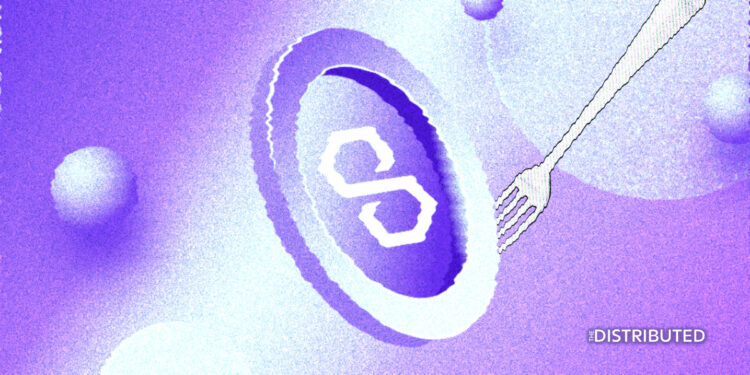Polygon underwent an upgrade Tuesday to improve the network’s transaction speed and reduce gas fees. However, the process that preceded the upgrade raised questions about the extent of decentralization on the Ethereum scaling layer-2 blockchain. Of 15 selected validators, 13 voted in favour of the proposal to have the hard fork.
Hard forks are events in a blockchain that upgrade software, creating a new parallel blockchain. Polygon’s Governance team proposed in December to have the fork in a process requiring a large majority of validators, which in this case needed 67%.
The proposal attracted controversy, with some community members demanding more details about the hard fork. Additionally, others questioned whether the upgrade was necessary in light of other urgent matters on the network. Interestingly, sources noted that some validators claim they were not part of the forum where Polygon tallied the votes.
See Related: Warner Music Group To Launch Music NFTs In Partnership With Polygon, LGND
Improved Transaction Finality and Stabilized Gas Fees
Polygon’s VO.3.1 Hardfork reduces the severity of gas spikes during peak hours by changing the BaseFeeChangeDenominator to 16 from the current 8 and – streamlining the increase or decrease of the transaction fees. The base fee is the minimum amount required for a transaction to be added to a block.
Secondly, the fork addresses the chain reorganization issues by cutting the ‘Sprint length’ from 64 to 16 blocks. It means one validator will generate blocks for a much shorter period, approximately 32 seconds from the current 128 seconds. On the Polygon blockchain, reorgs affect the transaction finality based on the number of confirmed valid blocks.
Amidst the hard fork, Polygon’s native token MATIC is changing hands for $1.01, representing a price increase of 17% in the past week, per data provided by CoinMarketCap. The crypto market has extended the new year’s uptrend, with the global cap at $996 billion.



